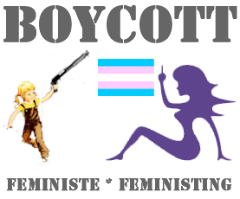[Note: This is a repost of a post by Char C. and not by me. The author has granted repost permission and even asks for it to be reposted.]
When someone is misgendered, I often get quite visibly angry. The thing is, I know that kind of strong reaction can take someone who has committed this offense off guard, especially if one has little experience with interacting with openly trans people. I can understand why someone who has made this mistake with a trans person might feel hurt and defensive in response to that person’s clear anger, when one is not sure why this is such a sensitive issue in the first place. So I was hoping to take just a moment to explain why we react this way.
People with trans history are not able to take their gender for granted, the way that people without that history do. We go through a long and really difficult process, almost all of which is invisible to anyone else. For example, I struggled with profound gender dysphoria for over a decade before deciding to take any steps to alleviate it. This struggle did not kill me, but it came close on countless occasions. At this point, I see my active transition process as the only alternative to suicide, a perspective shared by quite a few trans people.
We’re not ignorant of the consequences of being trans, after all. Our culture fears and hates us, openly and actively. It seems that every damn day I see another reporting of assault on a trans sibling of mine. We would not accept the clear day-to-day risks of living in such a trans-hostile environment if we were not convinced that the alternative to transition were worse. All of which is simply to illustrate the fact that gender is not something we take lightly, but is an aspect of our identity upon which we place great value and importance.
People who have misgendered anyone with trans history often take the defensive position that misgendering is not such a big deal. Often the argument is made that they, personally, would not take such offense if they had been misgendered. First, let me reiterate that gender is something people with no trans experience or history can take for granted. If you have never had to earn the right to be your gender from an unwelcoming physician, or fight for the right to exist as your gender while waiting for the bus or trying to use a public restroom, then you are probably a whole lot less invested in the way that people see you. Second, I have to disagree with the idea that trans people are the only people who are offended by misgendering. In my years in the service industry, I have seen firsthand countless reactions of people exploding in rage when offered an incorrect ma’am or sir. Gender is important to most people’s identity, regardless of trans history, and most find the egregious insult of misgendering pretty darn offensive.
Also important for myself and many like me is the question of sexual orientation. When my boyfriend or I have been misgendered, the message implied (despite any intent on the part of the person who misgendered us) is that he and I are engaged in a heterosexual relationship. The further implication is that we are playing the part of a queer couple, faux faggots, merrily appropriating the fashion of the gay community while actually living out a straight lifestyle.
The gaybashers on the street corners disagree. We are read as homos by people who don’t know us- a fact which highlights the interesting point that without exception, the people who misgender my boyfriend are those who know that he is trans. So we find ourselves stuck: attacked by homophobes for being gay, and snubbed by the gay community for being transgendered. Being misgendered brings up these frustrations and resentments, reminding us that it is impossible for us to leave our house without being scrutinized and attacked by both strangers and acquaintances. It may seem like a small Freudian slip in conversation to the person who misgenders us, but in fact it is a reminder that the rest of our lives will be spent under fire, as second class citizens.
The next time you are in conversation with a trans person and you misgender them, don’t try to brush it off as inconsequential or become defensive when your error is pointed out. Simply apologize honestly for your mistake, and try to be more aware of what is coming out of your mouth in the future.
-Char C.
(Please feel free to repost this.)





